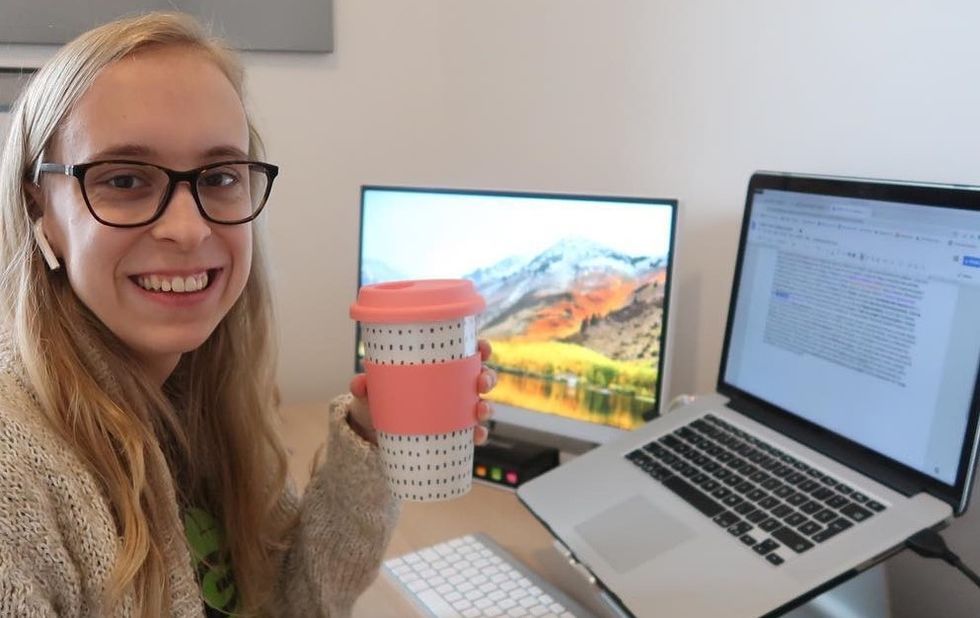Everyone studies differently. In the madness of testing, I have adapted my studying procedure to fit my needs. To study effectively, I identify what I need help with, get the assistance for it, and study alone in a quiet space over a period of time so that I am prepared for the exam.
Assess your needs
Before getting help from someone else, know what you need help on. Often times, practice tests are given before a test. Use that as an initial marker on what questions you have trouble with or answered incorrectly. Make a list of topics that you need the most review on.
Utilize your resources

Instead of sitting and staring at your review packet, hoping that eventually you will arrive at the correct answer, ask for help! There are so many resources on campus including your TA/professor office hours, recitations, study groups, or by simply asking a classmate. Remember that there are lecture notes posted on Blackboard and if not, make sure to go over notes you may have taken in class. Self-advocate for yourself and your grades. Ask the simplest questions if you have to for clarification. Do not be shy. It will all be worth it for your better understanding.
Study space matters

Personally, studying in a very quiet place helps me concentrate. Not only are there fewer distractions, but the environment also mimics the testing setting. The library is the best place to study because it's usually quite quiet and you are surrounded by students who are also working. Essentially, your environment is setting you up to study. It's only you and the content for the exam.
Do not cram

Maybe in high school it worked out for me, and when it didn't, I had retakes or test corrections to make up points for the grade. But in college, there are no second chances on a test. So why take the risk? Make sure you schedule at least one week in advance to prepare for your exam to nail down the content. There's only so much you can cram, but even then, cramming is stressful. You do not need more stress before a test. How much you study comes down to your scheduling. Make sure you make time to study before it's too late and test day becomes today.
Remember to sleep

We think sleeping less to study more is going to raise our chances of getting good grades. Not only is your memory compromised, but your ability to process information and attention is also dulled. In the long run, those extra hours of studying when you were already too tired are a waste. You won't remember anything unless you allow your mind and body to rest and enhance your memory.
Keep lots of water and snacks present

Studying consumes a ton of energy. Stay hydrated and eat small snacks in between. Do not miss meals. You don't want to study when your hunger is distracting and tiring you from focusing on school work.
Don't get frustrated

There are always topics that do not come easily to us. If you spend too much time on a topic that you are not making any sense of, that can be frustrating and can drop one's self-esteem. Instead of lingering on a topic that's taking too long to comprehend, go onto the next topic and come back to the harder ones later. When you do, search for resources that can clarify that content.
Adjustments are necessary

We study so hard for some of these exams but do not receive a grade that reflects our efforts. It happens. It may be because the test was not a good representation of the homework or practice exams that you were doing in class for the last month or so. Or it may be because you didn't study certain topics as much as the others. Either way, if your current study method is not getting you the scores you want, you need to adjust the way you study. That can be adding more time to study alone or booking an appointment at the tutoring center.
Studying should be fun

Studying can be fun if you find a method that you enjoy to learn the content. I love to write color-coded notes, ones that I will actually go back and read. Because of its colorful layout and the time spent writing them, I find them more attractive to study. Some people go beyond and have doodles and diagrams in their notes. Other people find flashcards to be fun or studying with their friends in a room with a whiteboard enjoyable. Find something you enjoy and somehow incorporate it into your study routine.
Be confident and reward yourself

If you studied a lot, be confident that you know your material when you go in to take your test. After all, the more you study, the more prepared you are, and the more likely you are to do well. So do not stress. Just study and enjoy doing it by taking breaks in between each goal you set. Even if studying for physics or calculus or chemistry is dreadful, remember your end goal is to ace the course, or at least not fail it. Use that motivation to succeed.

















